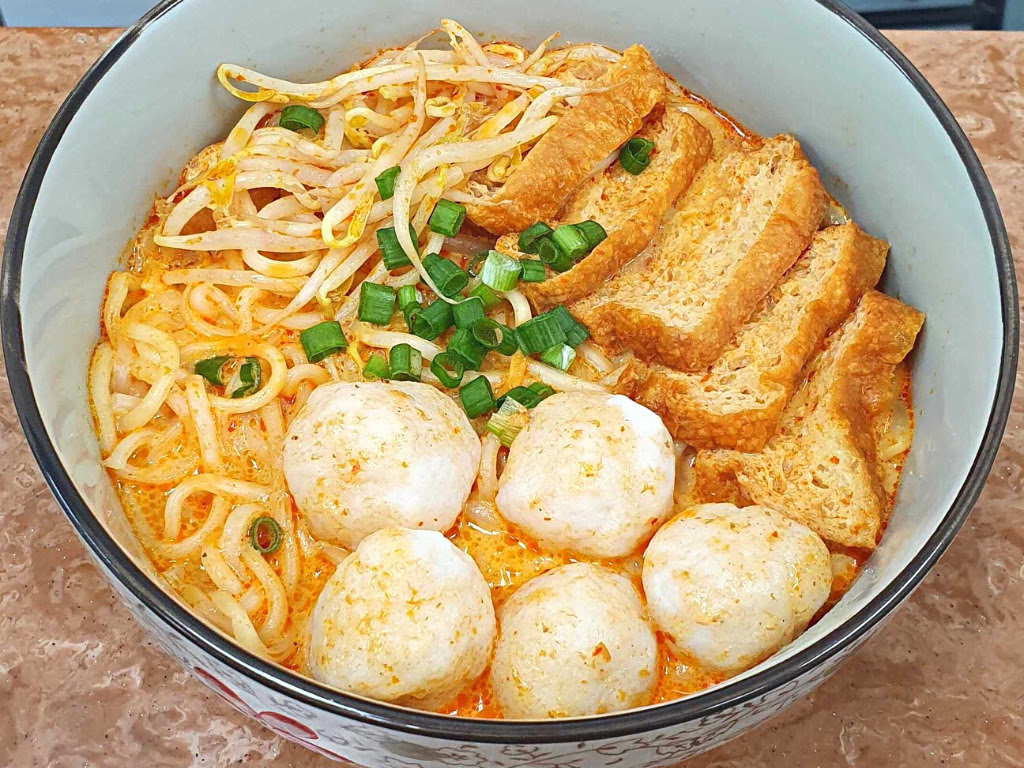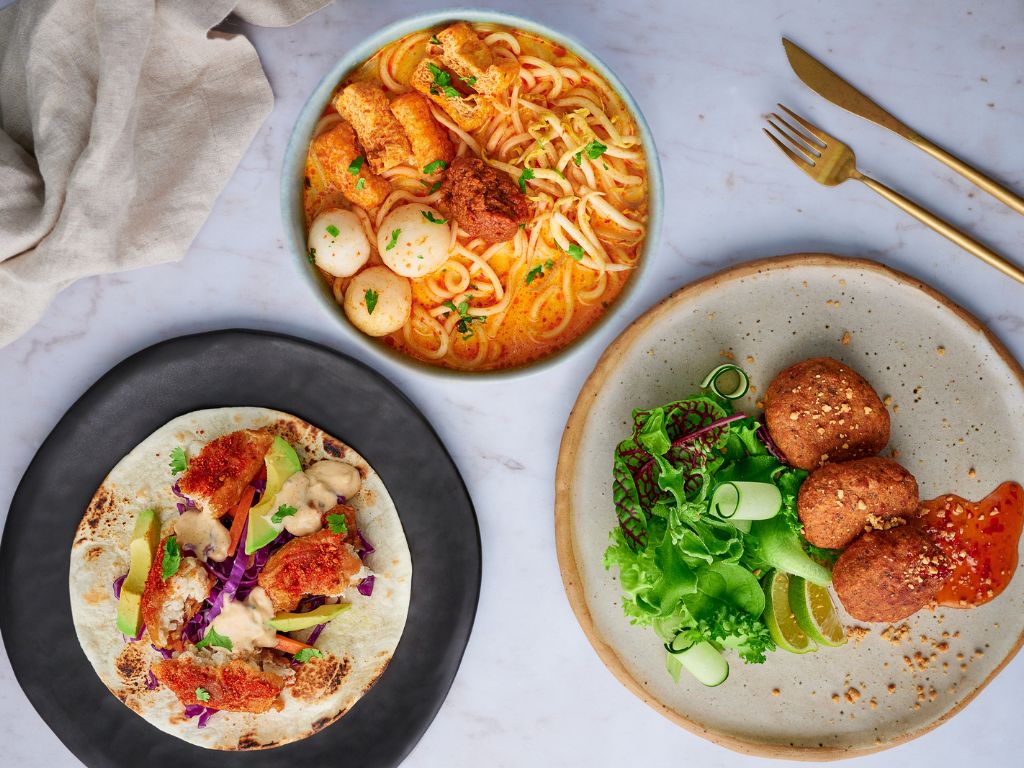
Singaporean cultivated seafood pioneer Umami Bioworks has teamed up with two biotech firms to set up a production line and path to market entry in South Korea.
With cultivated meat progressing rapidly in South Korea – thanks to the government’s establishment of a regulatory framework for these products – SIngapore’s Umami Bioworks is the latest to join the country’s burgeoning sector.
The cultivated seafood producer has signed an MoU with biotech firm KCell Biosciences and bioprocess solutions provider WSG to set up a scalable domestic production pipeline for cultivated seafood in South Korea, with a view to accelerate these products’ market entry in the country.
In what is one of the world’s largest seafood consumers, Umami Bioworks will combine its seafood cultivation technology, with KCell Biosciences’s cell culture media expertise and WSG’s bioprocessing hardware. The consortium will not only focus on the commercialisation of cultivated seafood in South Korea, but also serve as a model for future partnerships across Asia.
“Umami is providing the production process, cell lines, and product forming technology, while K-Cell is supplying cell culture media ingredients, and WSG is providing the production hardware,” Umami Bioworks founder and CEO Mihir Pershad tells Green Queen. “Collectively, we can deliver a true plug-and-play solution at a scale and cost suitable for leading food producers.”
Manufacturing plans and path to price parity

Umami Bioworks, which merged with fellow cultivated seafood player Shiok Meats earlier this year, is aiming to strengthen its production capacity to meet local market demands, regulatory frameworks, as well as consumer expectations about quality and sustainability.
It suggests that coupling WSG’s cost-effective bioprocess systems with KCell’s competitively priced media will ensure an efficient and scalable solution for cultivated seafood, allowing the three companies to ensure the safety and regulatory approval of these products in South Korea, and establish a path for commercialisation across the region.
“The packaged solutions of Umami’s bioprocess system, KCell’s cell-culture media production and WSG’s stainless infrastructure surpass the level of price parity for food companies licensing in the manufacturing of cell-cultivated seafood products,” says Victor Kang, CEO of KCell Biosciences and WSG Group.
Pershad says Umami Bioworks has made “substantial progress” on its costs this year, and will be manufacturing its first product at price parity with conventional seafood by the end of the year. “This would enable [us] to produce with a positive margin from the pilot commercial facility that would come online in 2025,” he explains.
This is key if cultivated meat is to take off in South Korea – only 12% of Koreans are willing to pay ₩1,000-3,000 (74 cents to $2.2) more per 100g of cultivated meat. On the other hand, 57% would eat cultivated pork if it’s cheaper than its conventional counterpart, and 25% would do so for beef too.
“Our intent is to bring each product we launch to market at price parity within the category to ensure we are creating a real opportunity for sustainable system transformation, and that price does not become a barrier to adoption,” he adds. “Our R&D pipeline has created a path for substantial cost production over the next 12 to 18 months as well, which will enable us to launch future products at parity with mid-market, and eventually mass-market, price points.”
Umami Bioworks’s is licencing its technology to customers for large-scale production, while maintaining enough internal production to validate its own processes at scale. “As such, we’ve currently established production capability for tens of kilograms and will extend that to a ton-scale demonstrator in early 2025,” reveals Pershad.
Umami Bioworks targeting regulatory approval in multiple countries

This is one of a number of partnerships Umami Bioworks has established in the last 12 months. In December, it teamed up with Malaysia’s Cell Agritech to set up large-scale production sites. And this year, it collaborated with two Indian research initiatives, and joined forces with Friends & Family Pet Food Co. in the US for cultivated pet food.
“Our partnerships in India are helping to progress our R&D and enhance our capabilities for cell line development from new species as well as scale-up. In the US, we are progressing both commercial and regulatory efforts to bring pet food to market in the near future,” says Pershad.
“In South Korea, our efforts will focus on progressing regulatory work to get a first approval while concurrently preparing those products for market launch with established food company customers, whose names we will be announcing in the coming months,” he adds.
South Korea began inviting applications for regulatory approval of cultivated meat in February after successfully establishing a framework for companies. “We are currently adapting our regulatory materials to the format preferred by South Korean regulators, as well as translating critical materials in preparation for submission,” Pershad says.
“We are in active review with documents submitted to regulators in major markets across America, Europe, and Asia. We’re having productive conversations with regulators, but could not comment specifically on the rate of progress or estimated approval dates,” he adds when asked about the startup’s pursuit of approval in other countries.
He confirms that Umami Bioworks is looking for clearance for both pet and human applications, and expects the first products (in collaboration with commercial partners) to come to market next year. “It’s difficult to say which may get approved first, though in general, the pet product review processes tend to operate on shorter timelines than the human novel food reviews,” he says.
The cultivated meat sector is evolving rapidly in South Korea, with the government creating a regulatory-free special zone designed for these cultivated foods, which harbours 10 startups. The Ministry of Oceans and Fisheries is also investing ₩28.6B ($21M) in research funding for its plant-based and cultivated seafood tech.
The post Umami Bioworks Inks Deal to Introduce Cultivated Seafood in South Korea appeared first on Green Queen.
This post was originally published on Green Queen.